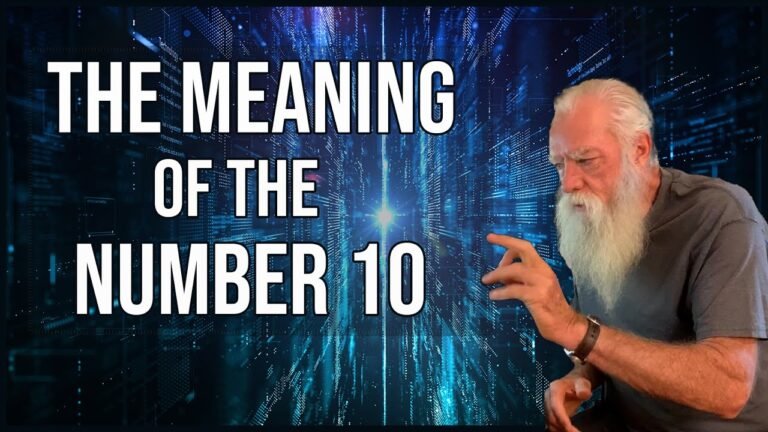Understanding the Meaning of Casting Lots
Casting lots is an ancient practice steeped in history and tradition, often associated with decision-making and divination. This intriguing method involves the random selection of lots, or small objects, to determine outcomes, allocate resources, or make choices in uncertain situations. With roots in various cultures and religions, the meaning of casting lots extends beyond mere chance; it reflects a blend of fate, belief, and social customs. As we explore its significance and applications throughout time, we uncover a fascinating intersection of chance and intention that continues to captivate the human experience.
What is the significance of casting lots in the Bible?
Casting lots in the Bible was a significant practice used to make decisions and determine God’s will among the people. In the New Testament, particularly in the book of Acts, we see this method employed to choose a new apostle to replace Judas Iscariot. This act was seen as a way to seek divine guidance, believing that God would influence the outcome and ensure the right choice was made.
Unlike the modern perception of casting lots as a game of chance or gambling, biblical casting lots was imbued with spiritual meaning and purpose. It was a communal act that demonstrated reliance on God’s sovereignty, reflecting the belief that the outcome was not merely random but divinely orchestrated. This practice highlights the faith of early Christians in seeking direction beyond their own understanding.
In essence, casting lots served as a bridge between human decision-making and divine intervention. It allowed the early church to navigate complex choices, establishing a precedent for seeking wisdom through faith. This historical context emphasizes the importance of recognizing God’s hand in the decisions made by His followers, reminding contemporary believers of the value of seeking divine guidance in their own lives.
What does it mean to cast lots for Jesus’ clothes?
During the crucifixion of Jesus, Roman soldiers, who had the right to the personal belongings of the condemned, cast lots to divide His garments. This act was not just a random occurrence; it fulfilled the prophecy found in Psalm 22:18, which predicted that His clothes would be divided among them. This poignant moment underscores the profound significance of Jesus’ sacrifice and the fulfillment of scripture in the unfolding events of His crucifixion.
Is casting lots equivalent to gambling?
Casting lots and gambling may share a common thread in their reliance on chance, yet their purposes and implications diverge significantly. In ancient times, casting lots was a method employed to seek divine guidance, allowing individuals to make decisions based on what they believed was a higher power’s will. This practice was deeply rooted in spiritual and communal contexts, aiming to align actions with a perceived divine plan.
In contrast, modern gambling is primarily driven by the pursuit of monetary gain. Participants engage in games of chance not for spiritual insight, but for the thrill of winning and the potential financial rewards. While both activities involve randomness, the motivations behind them highlight a fundamental difference: one seeks wisdom and direction, while the other seeks profit and entertainment.
Exploring the Ancient Practice of Decision-Making
Throughout history, decision-making has been an intricate blend of wisdom, intuition, and cultural influence. Ancient civilizations developed unique methods to guide their choices, often relying on rituals, omens, and collective deliberation. These practices were rooted in the belief that decisions could be shaped not just by reason, but also by a connection to the divine and the natural world. From the Roman Senate’s debates to the Oracle of Delphi’s prophecies, each approach reflected the society’s values and priorities, highlighting the significance of communal input and spiritual guidance in shaping outcomes.
As we delve into these ancient practices, we uncover timeless insights that resonate even today. The emphasis on collaboration and the understanding that choices are often influenced by factors beyond the individual can inspire modern decision-making frameworks. By integrating lessons from the past, such as the importance of diverse perspectives and the value of intuition, we can enhance our contemporary approaches. Exploring these age-old methods offers not only a glimpse into the minds of our ancestors but also equips us with tools to navigate the complexities of our own decision-making processes.
The Spiritual and Cultural Significance of Lot Casting
Lot casting, an ancient practice with roots in diverse cultures, serves as a profound tool for decision-making and spiritual guidance. Often employed in moments of uncertainty, this method involves the use of physical objects, such as stones or pieces of wood, to invoke divine insight. Many traditions view lot casting as a way to connect with a higher power, allowing individuals to relinquish control and embrace a sacred sense of fate. This practice not only reflects the human desire for connection to the divine but also serves to foster community, as groups often engage in lot casting rituals to seek collective wisdom or direction.
The cultural significance of lot casting transcends mere superstition, embedding itself into the social fabric of various societies. In many cultures, the act of casting lots is steeped in tradition, often accompanied by rituals that enhance its spiritual weight. From ancient biblical times to contemporary indigenous practices, lot casting embodies a unique intersection of faith, culture, and communal identity. It encourages introspection and reinforces the belief that, while individuals may pursue their paths, they are ultimately guided by forces beyond their comprehension, thus nurturing a deeper appreciation for the mysteries of life.
From Chance to Choice: The Role of Lots in Society
Throughout history, the act of drawing lots has served as a pivotal mechanism for decision-making, transforming random chance into a structured choice. In societies where fairness and impartiality are paramount, lots have been employed to allocate resources, select leaders, and resolve disputes. This age-old practice not only reflects a commitment to equity but also fosters a sense of community by involving participants in a shared process, ensuring that outcomes are perceived as just and legitimate.
The use of lots extends beyond mere randomness; it symbolizes a democratic approach to choice, embracing the unpredictability of human experience. In various cultural contexts, whether in ancient Greece or contemporary settings, drawing lots has acted as a tool to level the playing field, providing opportunities for all individuals, regardless of status or background. This egalitarian aspect reinforces social cohesion, as it mitigates power imbalances and encourages collective participation in governance and decision-making.
In modern society, the relevance of lots continues to resonate, particularly in contexts where transparency and fairness are essential. From jury selection to public lotteries, these methods act as a safeguard against bias, ensuring that choices reflect a broader consensus rather than the whims of a select few. As we navigate complex societal challenges, the practice of drawing lots reminds us of the importance of shared responsibility and the belief that, sometimes, chance can lead to the most equitable outcomes.
Understanding the meaning of casting lots reveals a fascinating intersection of chance, decision-making, and cultural significance across various societies. This ancient practice, often seen as a means to seek divine guidance or resolve disputes, continues to resonate in modern contexts, from games of chance to metaphorical interpretations in everyday life. By delving into its historical roots and contemporary applications, we uncover not just the randomness of fate, but also the profound human desire to find clarity and purpose amid uncertainty.







